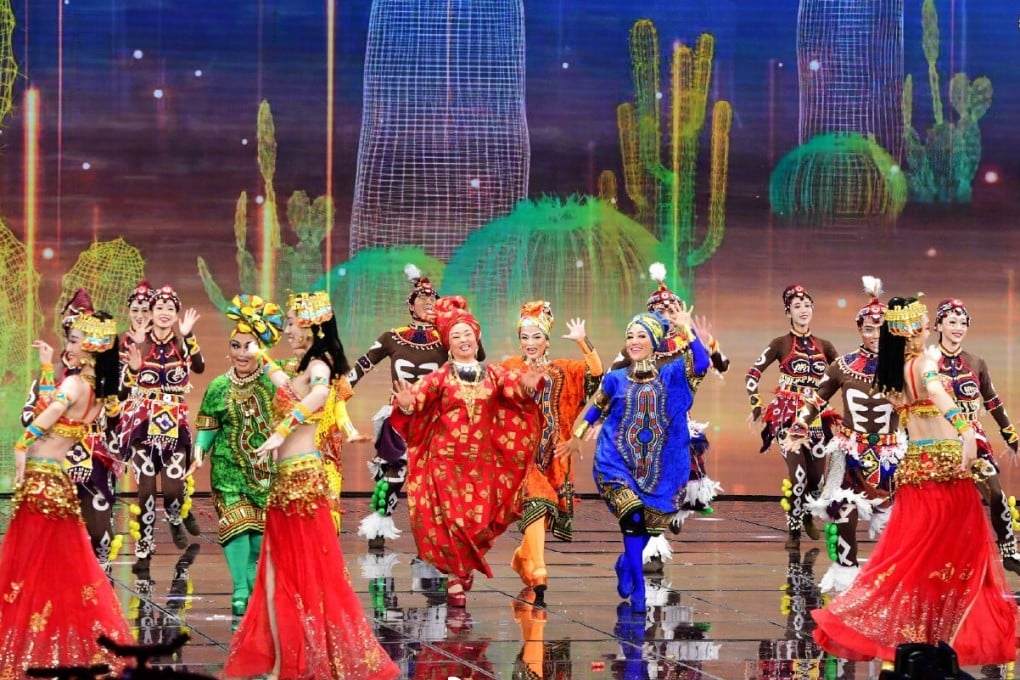Advertisement
China’s Lunar New Year TV extravaganza hit again by blackface scandal
- Criticism over the 2021 Spring Festival Gala follows a similar controversy in 2018 after a Chinese actress in blackface make-up wore costume with huge fake buttocks
- Singer Zhu Mingying says the show aimed to emulate art performances along the belt-and-road route
Reading Time:4 minutes
Why you can trust SCMP
56

A dance performance opening China’s biggest Lunar New Year gala show has sparked debate and criticism online for putting blackface onstage once again.
The performance during state broadcaster CCTV’s Spring Festival Gala on Thursday began with a group of dancers dressed in African-style clothing with their faces darkened with paint.
It was followed by dances from Egypt, Spain and Russia – countries taking part in China’s ambitious interconnectivity programme, the Belt and Road Initiative. By Thursday, the programme had attracted more than 1.8 billion views online.
Advertisement
But the opening performance was criticised both within China and from outside the country. International audiences condemned the blackface incident while Chinese people said they could not understand why dances from other countries should be included in the programme, a celebration of the country’s most important holiday.
As a form of theatrical make-up used by non-black performers to portray black characters, blackface is considered highly offensive, disrespectful and racist in much of the West.
Advertisement
That is particularly true in the United States where minstrel shows featuring white performers using blackface to depict black people emerged in the 19th century and remained on television until as recently as the 1970s.
Advertisement
Select Voice
Select Speed
1.00x